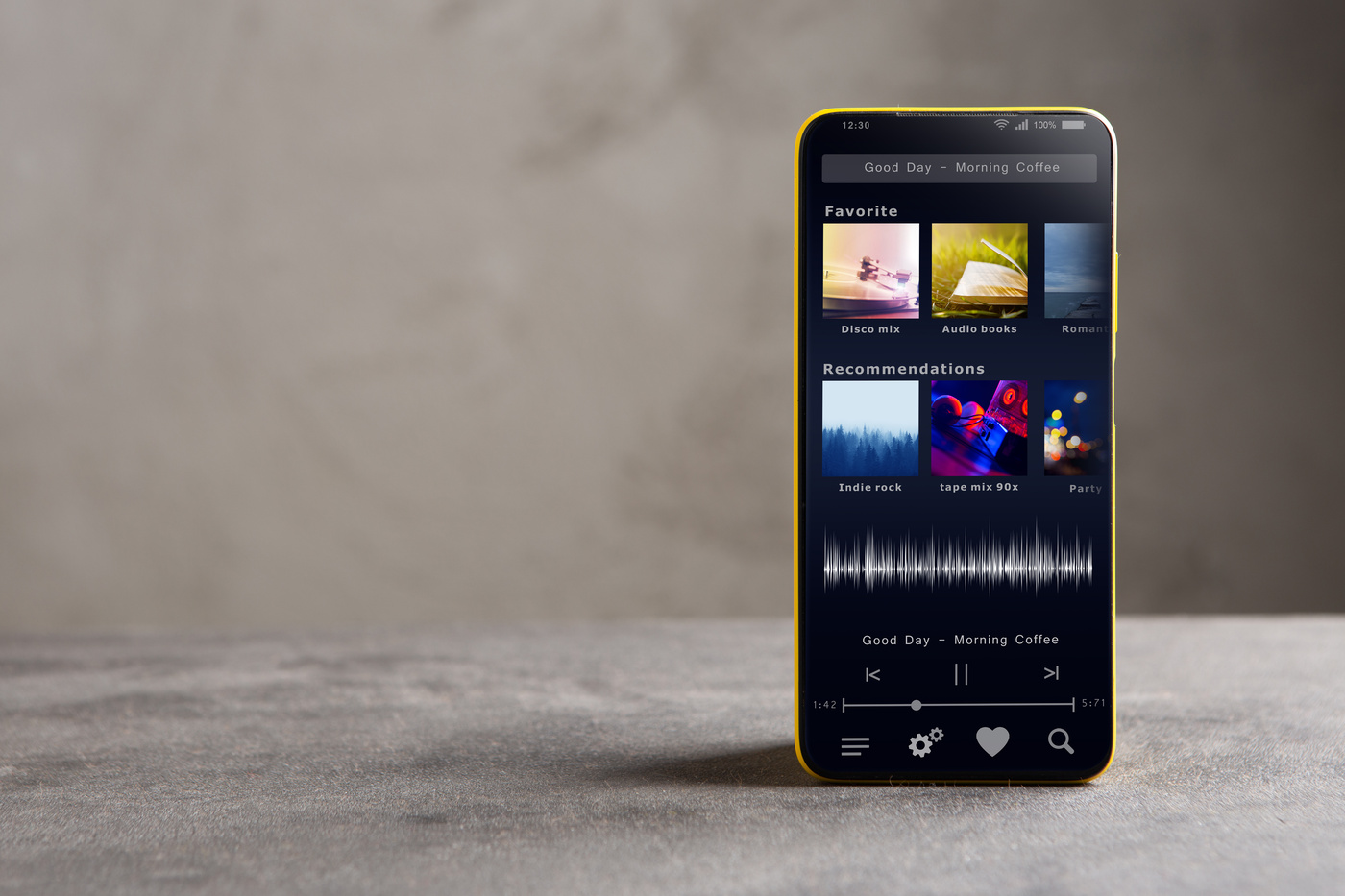Want to listen to music anytime, anywhere? Check out the best app options!
What do you prefer?
Find the perfect app for your needs!
Here's how to choose the perfect music app in 2024 and download it!


Advantages of using Music Listening Apps
- Access to millions of songs: Music apps offer vast libraries of millions of tracks, allowing you to listen to everything from the biggest hits to indie songs and rarities.
- Discovering new artists: Through recommendation algorithms, apps suggest new songs and artists based on your tastes. This makes it easier to discover new sounds and styles, expanding your musical repertoire effortlessly, in a natural and personalized way.
- Convenience and mobility: You can listen to music anywhere, anytime, as long as you have access to the internet or downloaded music. So whether you’re on public transport, at the gym or at work, apps ensure that your music is always at your fingertips.
- Integration with devices and virtual assistants: Many music apps integrate easily with smart devices like speakers and virtual assistants (Siri, Alexa, Google Assistant). This makes the experience more convenient, allowing you to control them using voice commands.
- Real-time updates and releases: With apps, you get instant access to new album releases, singles, and exclusive playlists as soon as they’re released. No more waiting for CDs to go on sale or downloads; content comes straight to your app.
- Variety of content: In addition to music, many apps offer access to podcasts, live shows, radio stations, and even music videos, which expands the entertainment experience by allowing you to explore different types of media.
Disadvantages of Using Music Listening Apps
- Dependence on internet or download space: If you don't have music downloaded offline, you'll need a good internet connection, which can be a problem in areas with weak signals. Plus, higher-quality downloads take up a lot of space.
- Limitations in the free version: Most apps offer free plans, but with limitations such as constant ads, restrictions on the number of tracks that can be skipped, and lower audio quality.
- Mobile data consumption: Streaming music in high quality can consume a lot of mobile data, especially if you’re not connected to Wi-Fi. This can result in extra costs, especially for those on limited data plans.
- Too many algorithmic recommendations: While personalized recommendations are a plus, the algorithm can end up limiting musical diversity by only suggesting tracks similar to what you already listen to, which can reduce the chances of exploring new genres.
- Lower sound quality in some cases: While many apps offer high-definition audio options, some users complain that on default settings or slow connections, sound quality can be compromised, resulting in a subpar experience.
- Dependence on monthly subscriptions: For those who want full, ad-free access, the cost of monthly subscriptions can be a downside. While the prices aren't exorbitant, the cost can add up over time.
Music apps are already part of our daily lives, whether to relax, cheer up or accompany important moments. With them, we can have access to an infinite world of music without complications.
In other words, you just need to open the app and explore tracks from different genres, styles and eras. This ease, combined with the huge variety, has made the habit of listening to music even more popular and accessible.
In this sense, the most interesting thing is how these apps have gone beyond simple streaming. They offer us tools that change our relationship with music, such as the possibility of creating playlists that reflect our tastes.
Given this, there are many options available. But the important thing is that, regardless of the choice, these apps are here to stay. So, don't waste any more time and download them now!
App
